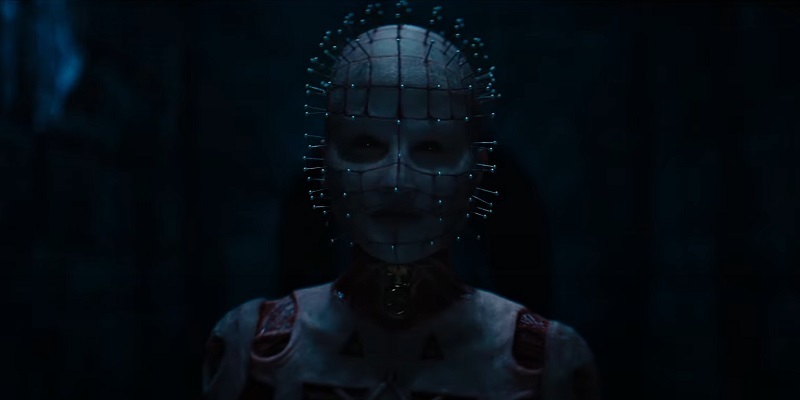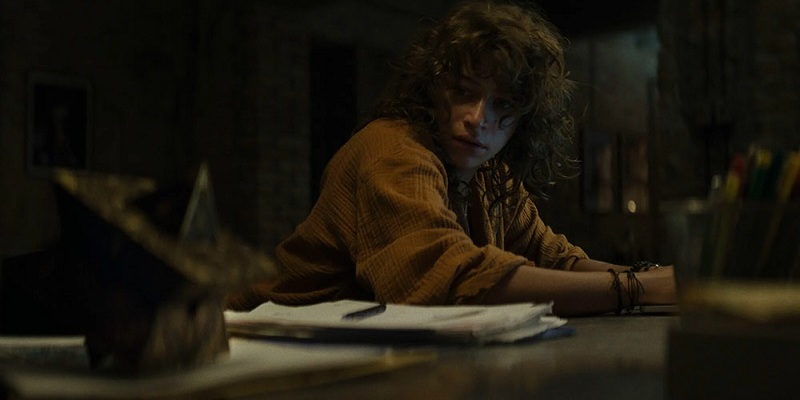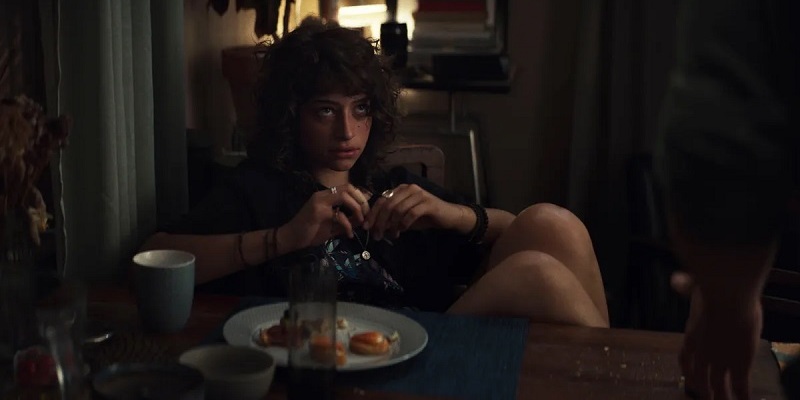
Review by
Eric Hillis
Directed by: David Bruckner
Starring: Odessa A'zion, Jamie Clayton, Brandon Flynn, Goran Višnjić, Drew Starkey,
Adam Faison, Aoife Hinds, Selina Lo, Hiam Abbass

Clive Barker's 1987 directorial debut
Hellraiser, an adaptation of his novella 'The Hellbound Heart', was a scuzzy little
piece of low-budget filmmaking with a very British sensibility. It wasn't
the sort of movie you might expect to spawn a franchise, but this was the
era of Michael Myers, Jason Voorhees and Freddy Krueger. Hollywood latched
onto a relatively minor figure, Pinhead, the leader of a race of
interdimensional sadists, and decided he could become a suitably iconic
horror baddy to build a series around. The trouble is, Pinhead is the Boba
Fett of the horror genre - he looks badass, but there's not a whole lot to
him otherwise, and the multiple sequels (most made simply to hang onto the
rights) struggled to build engaging stories around the character.

While the series churned out the movie equivalent of ashcan comics, rumours
of a remake/reboot would often pop up and quietly disappear. Now a
remake/reboot has actually surfaced, but in the month between its US release
on streaming service Hulu and its UK/ROI VOD release, it's already quietly
disappeared, with no promotion whatsoever for its UK debut.
This Hellraiser has an acclaimed filmmaker behind the
megaphone in director David Bruckner (The Ritual;
The Night House
- neither of which earned their acclaim), and it boasts the sort of budget
the directors of the last eight or so franchise entries could only dream of.
But its budget may well be its downfall, as unlike Barker's original, which
was largely confined to one location, this sees characters zip around in a
narrative that has more in common with a detective thriller than a horror
movie.

The series has been centred around a puzzle box known as the Lemarchand
Configuration, which has the ability to open a portal between our dimension
and that of the cenobites. Once the latter appear it spells trouble for
whoever summoned them, whether by accident or on purpose. This time out the
box falls into the hands of recovering junkie/alcoholic Riley (Odessa A'zion) when she and her bad boy boyfriend Trevor (Drew Starkey) discover
it in an abandoned warehouse they've broken into. When Riley's brother Matt
(Brandon Flynn) cuts himself on the box, he subsequently vanishes,
leading Riley to believe the box had something to do with his
disappearance.
Thus sets in motion a mystery narrative that has more in common with
The Ring
and its various turn of the century imitators than with Barker's dark fable.
Notorious libertine Barker was inspired by his many visits to S&M clubs,
but there's very little kinkiness in this teetotal reboot. From its daytime
soap attitude towards alcohol and drugs to its almost complete erasure of
sexual sadism, this is a Hellraiser that seems desperate not
to offend. The connection between pleasure and pain is practically erased here, another example of our sexless era throwing the baby out with the bathwater. The cenobites have gone from the leather-clad sex club regulars
of Barker's original to an androgynous, non-threatening lot who would be
more at home sipping green milk in the Mos Eisley cantina. Original Pinhead
star Doug Bradley, whose deep voice is akin to that of an evil cave mouth,
has been replaced by trans actress Jamie Clayton. In theory this
should work as it's closer to the depiction of the character in Barker's
novella, but the soft-spoken Clayton fails to evoke an ounce of the
intimidating nature of Bradley's take (I was reminded of the ghost from that
Simpsons X-Files crossover episode) and the film never seems quite sure what
to do with this new take on the character.

The bland cenobite designs aside, there are some interesting visual ideas
at play here. Much of the action takes place in a decrepit mansion designed
to be something of a puzzle box itself, an idea Bruckner ports over from his
previous movie The Night House. There's a neat piece of Cronenbergian body-horror involving
Goran Visnjic as a victim of the cenobites' inability to recognise
the line between pleasure and pain. But at over two hours, there just isn't
enough capital H Horror on display, with too much of the running time
devoted to dull heroine Riley's quest for answers. When the cenobites do
emerge in the final act they overstay their welcome, with the film employing
them like the zombies gathered outside the country house of
Night of the Living Dead and thus removing much of the
metaphysical threat that once made them unique among horror villains.


